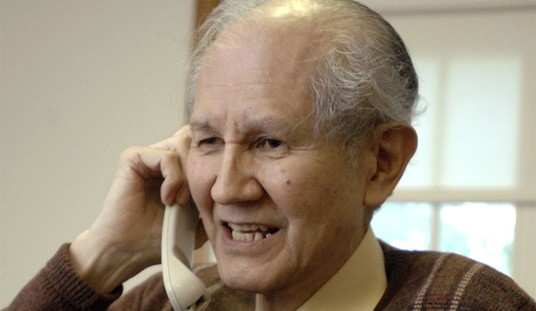A related question: Should an employee be forced to choose between going to work and possibly spreading his disease or staying at home and losing income?
You can make the big government argument, one that I am not unsympathetic to, but looking at the issue practically, there are other factors that must enter into one’s thinking on the subject.
The Associated Press article on the subject frames the issue in terms of the worse-than-normal flu outbreak. This is a particularly nasty strain of the bug that hits hard and is very contagious.
Employees without sick days are more likely to go to work with a contagious illness, send an ill child to school or day care and use hospital emergency rooms for care, according to a 2010 survey by the University of Chicago’s National Opinion Research Center. A 2011 study in the American Journal of Public Health estimated that a lack of sick time helped spread 5 million cases of flu-like illness during the 2009 swine flu outbreak.
To be sure, many employees entitled to sick time go to work ill anyway, out of dedication or at least a desire to project it. But the work-through-it ethic is shifting somewhat amid growing awareness about spreading sickness.
“Right now, where companies’ incentives lie is butting right up against this concern over people coming into the workplace, infecting others and bringing productivity of a whole company down,” said John A. Challenger, CEO of employer consulting firm Challenger, Gray & Christmas.
Paid sick day requirements are often popular in polls, but only four places have them: San Francisco, Seattle, Washington, D.C., and the state of Connecticut. The specific provisions vary.
Milwaukee voters approved a sick time requirement in 2008, but the state Legislature passed a law blocking it. Philadelphia’s mayor vetoed a sick leave measure in 2011; lawmakers have since instituted a sick time requirement for businesses with city contracts. Voters rejected a paid sick day measure in Denver in 2011.
In New York, City Councilwoman Gale Brewer’s proposal would require up to five paid sick days a year at businesses with at least five employees. It wouldn’t include independent contractors, such as Zavala, who supports the idea nonetheless.
Five sick days is too many for a relatively healthy person. I’ve been under union contracts that had 3-5 days of sick leave and/or personal leave with the incentive that unused sick days were paid as salary in the last pay check of the year. Most of my co-workers took one or two mental health days a year and pocketed the rest.
Another factor is our aging population. The older you are, the more severely colds and flu impact the body. Without a couple of days rest, the body can’t fight the disease as easily as it could when you were in your 20’s and 30’s. It makes sense from a productivity standpoint to grant employees a couple of days off to get better and make spreading the bug less likely.
But on the other side of the coin, there are many small businesses that simply can’t afford to pay employees if they’re not at work producing. Many times, a business has to call in temp help to cover a sick employee who’s out. Anyone who’s ever run an office knows this is not cheap. Then there’s the question of employees abusing the sick day rule, although policing the problem is difficult. There are some companies that demand the employee get a doctor’s note before they can return to work. But most people don’t go to a doctor for a cold or even the flu. And the expense of going to a doctor to get a note defeats the purpose of a paid sick day. Rather than be forced to pay for a visit to a doctor, the employee is likely to come to work anyway.
No ready solution presents itself, but it is a problem that should be dealt with as our workers age and health care costs continue their upward direction.









Join the conversation as a VIP Member